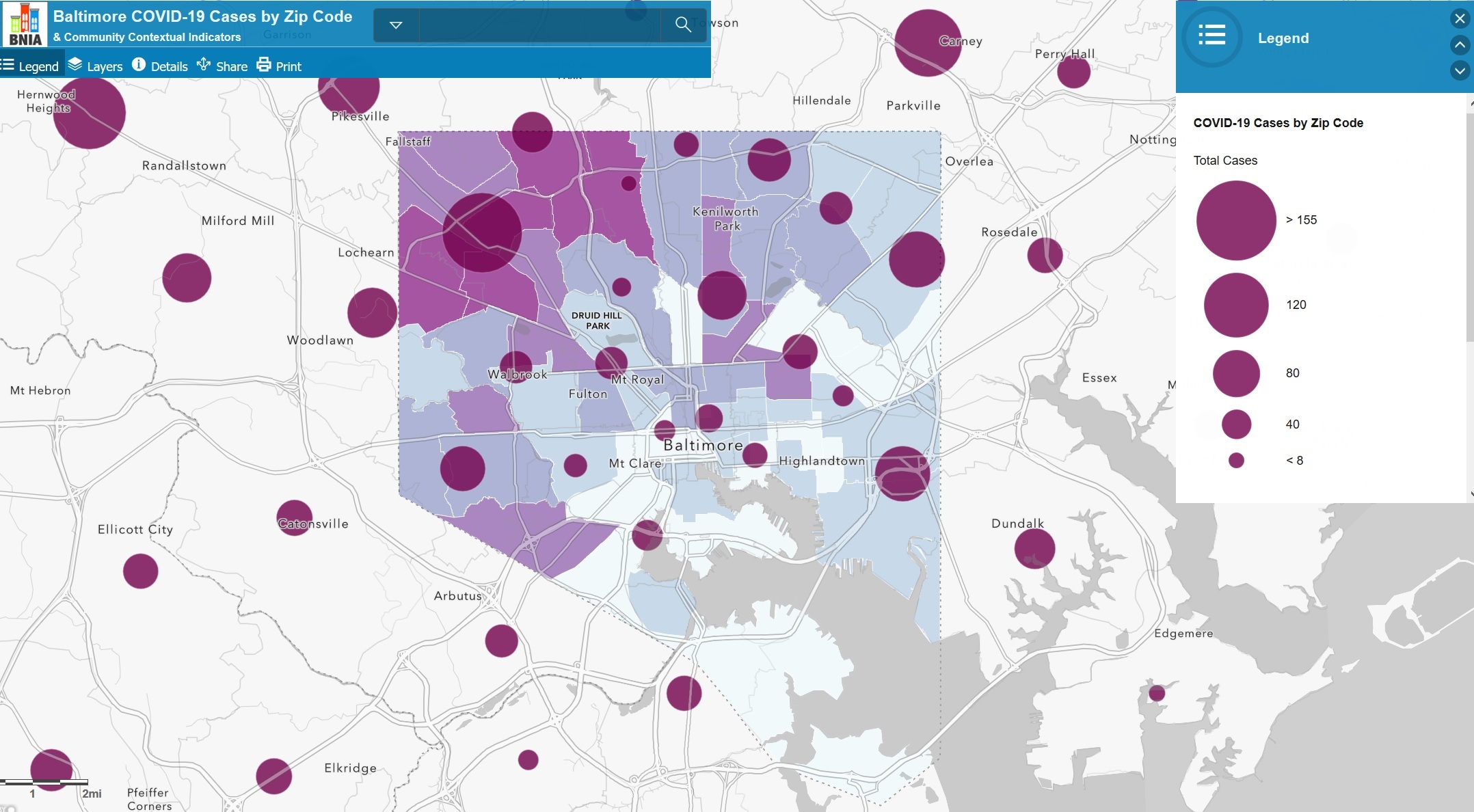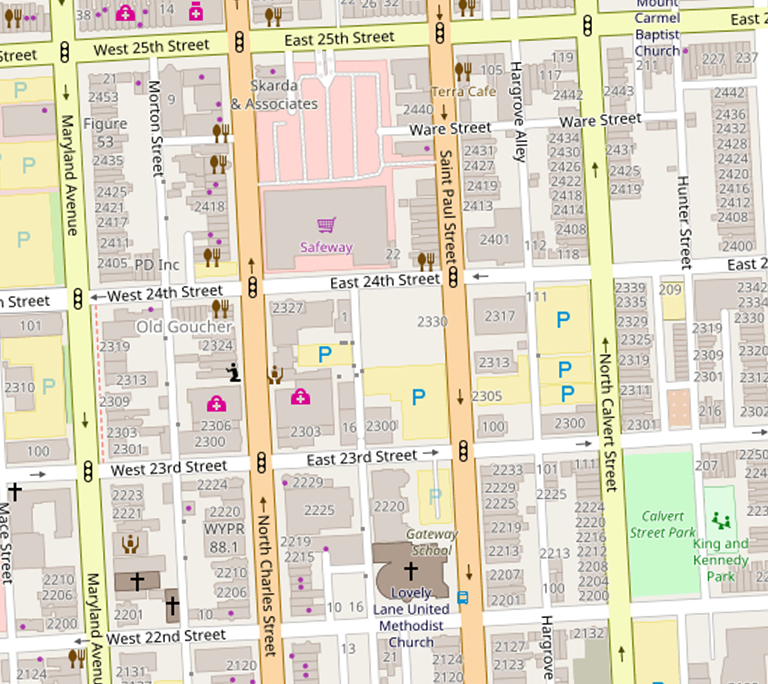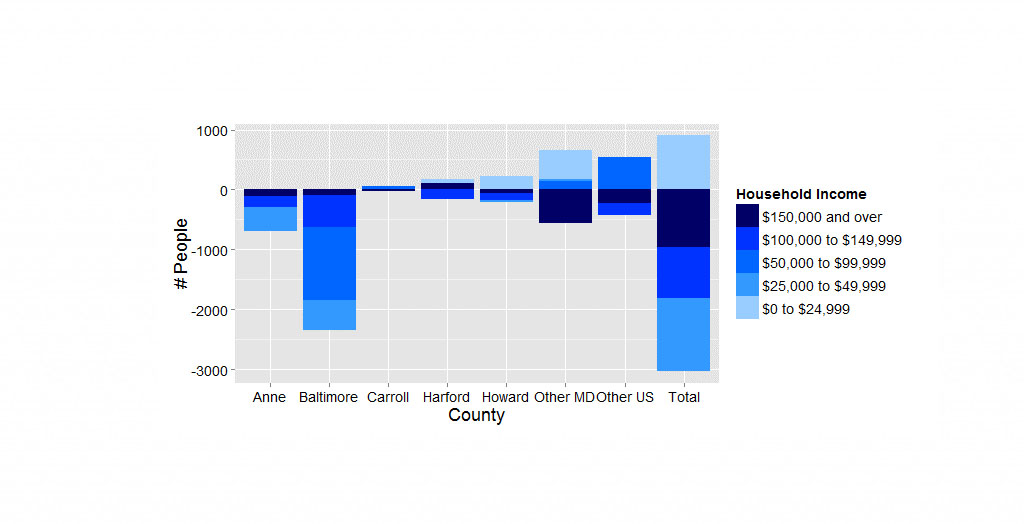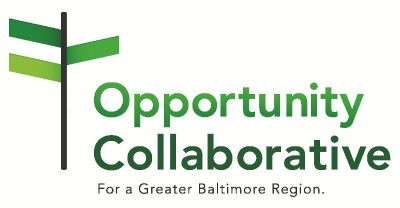Cheryl Knott wrote a new post 5 years, 1 month ago
Click to Explore the map
The Baltimore Neighborhood Indicators Alliance – Jacob France Institute (BNIA-JFI) has created this tool to visualize COVID-19 cases by zip code alongside community indicators tracked in […] 
Cheryl Knott wrote a new post 6 years, 5 months ago
In September and October 2018, we hosted three roundtable conversations around potential new indicators to include in future editions of Vital Signs. The conversations focused on emerging ideas and data […] 
Cheryl Knott wrote a new post 7 years ago
Earlier this month I traveled to Atlanta to the Spring meeting of the National Neighborhood Indicators Partnership (NNIP). The partnership, led by the Urban Institute, brings together organizations that serve as […] 
Cheryl Knott wrote a new post 7 years, 1 month ago
Vital Signs 16 Shows Beginnings of Change in Baltimore Neighborhoods, Especially in Housing
Vital Signs 16, a comprehensive statistical portrait of Baltimore and its neighborhoods, marks 16 years of continuous […] 
Cheryl Knott wrote a new post 7 years, 6 months ago
GIS Day
This week, on November 15th, the world celebrated GIS Day, a day to celebrate, network, and learn about Geographic Information Systems and geography. BNIA-JFI celebrated the day at The Johns Hopkins […] 
Cheryl Knott wrote a new post 9 years, 5 months ago
On the Baltimore Data Day 2015, participants on and off-campus told us how they use the Vital Signs data that the Baltimore Neighborhood Indicators Alliance releases every year. Baltimore Data Day is an education […] 
Cheryl Knott wrote a new post 9 years, 6 months ago
Part of a Global Effort to Achieve Newly Adopted Sustainable Development Goals
November 6, 2015
Contact: University Relations
Phone: 410.837.5739
The University of Baltimore, its College of Public […] 
Cheryl Knott wrote a new post 10 years ago
The Baltimore Neighborhood Indicators Alliance-Jacob France Institute has released a series of reports—“Grow Baltimore: Who’s Moving, Where and Why”—which offers details about factors that influence population trends in the city. These efforts, plus those of Live Baltimore through its new Way To Stay website, featuring resources to assist families as they explore local education options, are part of a trend to encourage local residents to stay in Baltimore, and to welcome new families to the city.
In 2011, Baltimore Mayor Stephanie Rawlings-Blake announced a goal to increase Baltimore’s population by 10,000 families by 2020, known as the Grow Baltimore Initiative. Although the city suffered six decades of population decline, today Baltimore shows encouraging signs of population growth. The Grow Baltimore Initiative aims to harness research, community input, and collaboration to amplify the elements of Baltimore life that attract residents and provide resources to support current residents for a lifetime.
The research conducted by Baltimore Neighborhood Indicators Alliance and Live Baltimore illustrated several key factors that drive individuals’ and families’ decisions to move to (“pull”) and from (“push”) Baltimore.
“Pull” Factors: Elements associated with Baltimore that attract residents to city living and encourage them to stay:
Growing Employment Sectors and Anchor Institutions
Location (i.e., proximity to Washington, D.C. and the mid-Atlantic region)
Sense of Place and Community Associated with Urban Living
Cultural and Economic Diversity
Growing Population of New Americans
Large Stock of Affordable Housing
“Push” Factors: Elements associated with Baltimore that dissuade residents from city living or cause them to consider relocating:
Public Safety (particularly property crime)
School Quality
Transportation Access and Connectivity
Government Customer Service
Taxes and “City-Living Premiums” (e.g., higher car insurance rates)
Housing Quality and Size (particularly relevant to growing families and middle-income retirees)
Follow media coverage and join in on discussion on Twitter, @bniajfi, #GrowBaltimore.
New Study Highlights An Increase Attraction To Charm City, CBS Baltimore
Why People Are Leaving (or Staying) In Baltimore, WYPR 88.1FM
Report examines why residents stay in and leave Baltimore, Baltimore Sun
Keeping millennials in Baltimore remains a challenge, Baltimore Business Journal
New Data: Baltimore, still hyper-segregated but (almost) growing, Community Architect Daily
Research for the report and development of the website were funded by the Goldseker Foundation.
Cheryl Knott wrote a new post 10 years, 2 months ago
Mayor Stephanie Rawlings-Blake announced Grow Baltimore in December 2011 with the goal of increasing Baltimore City’s population by 10,000 new households by 2020. BNIA-JFI has prepared a 3-part series of briefs f […] 
Cheryl Knott wrote a new post 10 years, 2 months ago
The Baltimore Neighborhood Indicators Alliance – Jacob France Institute has been working with the Mayor’s Office of Criminal Justice to provide data analysis and evaluation services for the Byrne Criminal Justice […]
Cheryl Knott wrote a new post 10 years, 4 months ago
“The Opportunity Collaborative releases Strong Communities, Strong Region”
The Opportunity Collaborative, January 2015
“The Baltimore region will gain economic strength by having communities that provide jobs f […] 
Cheryl Knott changed their profile picture 10 years, 11 months ago